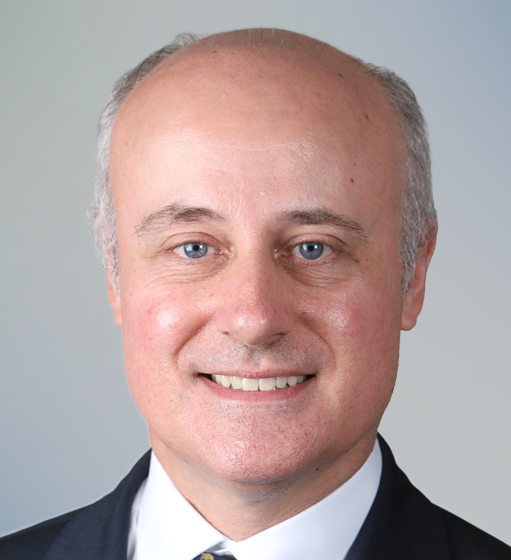Klaus Regling in interview with ERT TV (Greece)
Transcript of interview with ESM Managing Director Klaus Regling
ERT TV (Greece)
Broadcast on 17 July 2019
Interviewer: Rallou Alexopoulou
Original language: English
ERT TV: Yesterday you met with the prime minister and the finance minister. What were the main topics that you discussed with them?
Klaus Regling: I came here for a conference and it was also a great opportunity to have first talks with the new government. The government is now in place for little more than a week. So not everything is defined. But it's good to learn early what will be the main orientations of the policies of the new government.
And from the ESM perspective, of course, we are particularly interested in the economic issues. We have a long-term interest in Greece; ESM loans will only be repaid over the next 50 years, so we will have a long-term relationship and very similar interests. The ESM wants to see more growth and healthy developments in Greece. That's also the best way to gain debt sustainability. And it was very good to hear from the Prime Minister and the finance minister that this is also the main orientation that the new government will have to generate more growth and more employment. And that's I think good for the Greek people and for the ESM as a creditor.
The new government is preparing a number of tax reforms. Some of the measures start from 2019. Most of them will be implemented in 2020 and 2021. Did you discuss them with Mr Staikouras? How do you see them? And do you think that with these measures, the overall commitment could be achieved? I'm talking mainly about 2019 and 2020.
We discussed in a broad sense the policy on taxes. And I know that the government wants to lower taxes. Which in principle I think is positive because it's a growth strategy. For us at the ESM, there is always this question of what is growth-friendly and what is not growth-friendly and it is the fact that tax rates in Greece, particularly corporate income tax, personal income tax, are high. The rates are high. So to lower rates in principle is fine. The question is always how this is financed because it means there will be less revenue if the rates are lower. So one also has to discuss the other side of that equation. One way for instance, on personal income tax, would be to broaden the tax base because the number of people who actually pay taxes in Greece is relatively small, compared to all other European countries. So a broader tax base with lower rates is one possible way. But we didn't go into all those details. It's a bit too early for that. The European institutions will come back in September to analyse in more detail but the finance minister also promised that we would get detailed information in the next few days. And that's a very good sign of cooperation.
Apart from the tax reform, did you discuss about the primary surplus targets? We know that the goal of the new government is to accelerate reforms in order to boost growth. If this happens, do you think it will help to integrate the debate over reducing the targets for primary surplus? Let me remind you about that. The target is 3.5% until 2022, then in 2023 it's 3% percent and 2.5% in 2024. Mr Stournaras said that the targets should be lower. Yesterday Mr Vijlbrief said that the targets are not for always. When can we think that a discussion could start about this?
I don't know when it will start; it's not relevant at the moment because the prime minister and the finance minister confirmed that they will stick to the agreed fiscal framework, particularly when the 2020 budget is put together. Again, at the ESM, we have a very long perspective - the next 40 years. We will continue to do our debt sustainability analysis, also looking at growth, debt relief, fiscal measures - that all has to be looked at together. And this can change over time. But I think at the moment this is not relevant. In my discussions in Athens, there was confirmation that for this and next year, the agreed fiscal targets will be maintained; that was not put into question.
What we will see in the future?
Of course the future is probably a bit different from what we thought a year ago because many variables change, but it's very hard to predict at the moment in which direction. Growth in the end is a key factor when we look at debt sustainability. That's why I always emphasize that from the ESM perspective, we have the same interest as the government and the Greek people to generate more growth - that is positive; there is no disagreement on that. The question is what to do now to get to higher growth. Because what happened in the last three months was that the previous government went in the other direction. There were measures taken that were not growth friendly and therefore it's important now to get back to the old baseline scenario.
Do you think there is a fiscal gap for 2019?
That's what the European institutions, not only the ESM, have said publicly - that based on the measures taken over the last two months, we see a risk that the target for this year might not be reached. Of course we are now in July, so five months are still to come. And we hope that the government is right. The finance minister told me that his best assessment at the moment is that the target for this year will be reached. That will be looked at in great detail when the mission returns in September.
In the spring, the previous government announced its intention to proceed with the early repayment of IMF loans to Greece. Where do we stand on that issue? Did you discuss it with Mr Mitsotakis or Mr Staikouras?
I did not discuss that the last few days. But I would expect that the new government will also make that request. And then we will take it up. I have said previously, and that remains true, that it is in the interest also of the creditors - and the ESM is the main creditor - to repay debt that is particularly expensive. And certain parts of the IMF loan are expensive. So it would make sense to repay that. But it was not discussed the last few days.
Let's come to the markets. In recent months, especially after the announcement of the election, the yield of Greek bonds has fallen sharply. However, Greece is not yet in investment grade. When do you think this would happen, and how could the Greek economy benefit from it?
It is correct the markets have reacted positively to the announcement of the new government and the bond issue earlier this week was very successful. You had relatively low interest rates and the bond was heavily oversubscribed. Markets will of course monitor very closely what the government will be doing. But if the implementation is along the lines of the announcements of the government, then I think markets will see that as positive. And also foreign investors, I think, will look at it positively, which is also very important.
Rating agencies will also react, that's clear. The ratings have improved over the last few years significantly but it's not investment grade yet. I cannot say when the rating agencies will take the next steps but it will depend on government policies. So it's one more reason to follow up. But I have no doubts that the government has the intention to do that - to implement the growth-friendly policies they have been talking about.
Let's come to the European economy. Brexit, trade war, geopolitical tensions are some of the main risks for the Eurozone economy. In what fields do you think the Eurozone countries should pay attention in order to avoid a recession? And a second thing, are you in favour of more accommodative monetary policy, if needed?
I don't see the risk of a recession. But we see clearly a slowdown in growth for the euro area as a whole. But to some extent, that was to be expected and unavoidable, because growth rates in the last three years were particularly strong. And they could be strong because there wasn't what the economists call an output gap; there was slack in the economy, so there could be growth above the normal trend growth but only for a while. And this output gap is closed now. So growth will only be around trend growth, which for the euro area is certainly no more than 1% to 1.5%. So that slowdown, coming from 2.5% to 2% or 1.5% was to be expected. And in way, people should not be too surprised. But then there are risks, of course, on top of that normalisation.
Brexit - we have to wait and see. But I think it's good to be prepared for the worst. The trade war is already showing negative results. World trade is stagnating and that has a negative impact on the growth of many countries. So there are these risks and some risks are materialising. But I don't see the risk of a recession because employment is growing in most European countries. At the same time, wages are going up slowly but still in a healthy way. But that together - more jobs with higher wages - means there's more money for consumption and that will stabilise the economy. So a recession I don't see, unless other risks, geopolitical risks that one cannot forecast, also happen. But normally I see a slowdown but not a recession.
So I don't think that one has to be too concerned, but one has to think about how whole economies can be strengthened. Indeed the programme of the new Greek government fits very well in that perspective. Structural reforms to strengthen the economy are necessary in many European countries, not only in Greece. I think that's what should happen now. On monetary policy I will not comment.
I would like to ask about Madame Lagarde and her nomination for president of the ECB. What are the main challenges she will have to face?
The job of ECB president is a very difficult job. Because 19 countries have one monetary policy but otherwise they have their own economic policies. So to bring that all together is not easy. We also know monetary union is not complete yet. There are some elements missing on banking union and on the fiscal side. And I think she will play some role in that. She has clear views on what should be done. She has very good experience from her time at the IMF and before that she was French finance minister. She knows everybody in Europe and around the world. She is a person who listens and is able to integrate different views. So I think she is the right person at the right time.
Do you think she is the "rock star" of international finance?
I don't know how you define "rock star". But certainly she is a very special person. A very prominent person and I think that's we are very lucky to have her back in Europe.
Contacts




